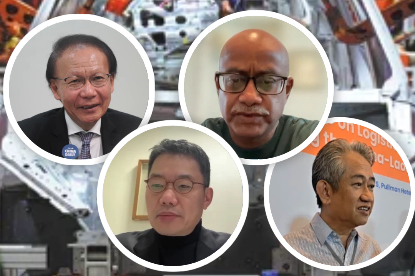Scientists embrace new ways of working

The novel coronavirus pandemic has transformed the way scientists and researchers communicate, bringing the scientific community closer together.
Lawrence Young, a professor of molecular oncology at the University of Warwick in Coventry, said: "While science has always been a global eff ort, the coronavirus pandemic has created a worldwide response like no other in history.
"It has reinforced the need to set aside national and personal ambitions to openly share data and to work together to fight the virus. It has also highlighted how modern technology and the speed of information-sharing can be used to rapidly disseminate developments and data."
Two online archives, bioRxiv and medRxiv, share academic research before it has been reviewed or published in journals. They have been inundated with novel coronavirus research, including contributions from Chinese researchers.
"Chinese scientists have, in many respects, led the world's coronavirus research. It was a Chinese laboratory that first made public the coronavirus genome sequence in January and this led to the development of coronavirus tests and vaccines around the world," Young said. "A significant proportion of publications on both basic and clinical aspects of SARS-CoV-2 in high impact factor journals are from China, and Chinese scientists have contributed many preprints of unpublished data on the medRxiv and bioRxiv archive websites. And there are many clinical trials in China and around the world that are sharing and comparing data."
The Wellcome Trust, a research-charity based in London, wrote: "Throughout this pandemic, researchers have embraced open publishing platforms and preprint servers to share their findings as quickly as possible."
In March, more than 30 publishers committed to making all their COVID-19 and novel coronavirus-related publications accessible in PubMed Central and other public repositories.
In the United States, researchers set up a channel on the instant messaging platform Slack to coordinate research and compare results.
Under normal circumstances, academic research journals can take around six to nine months to publish, but researchers are sharing protocol over social media in real time, meaning they are gaining quicker feedback in response.
Mamas Mamas, a professor of cardiology at Keele University in Staffordshire and a consultant cardiologist at Royal Stoke Hospital, agreed dissemination has changed in the industry.
"I've interacted a lot with people from China, Italy and Spain over social media and have learnt from their experiences in managing COVID-19," he said. "The Chinese were sending their protocols in real time before they got published. The doctors in Wuhan were doing video meetings that we were all dialing into. These were doctors with great experience and they told us what they were doing."

































